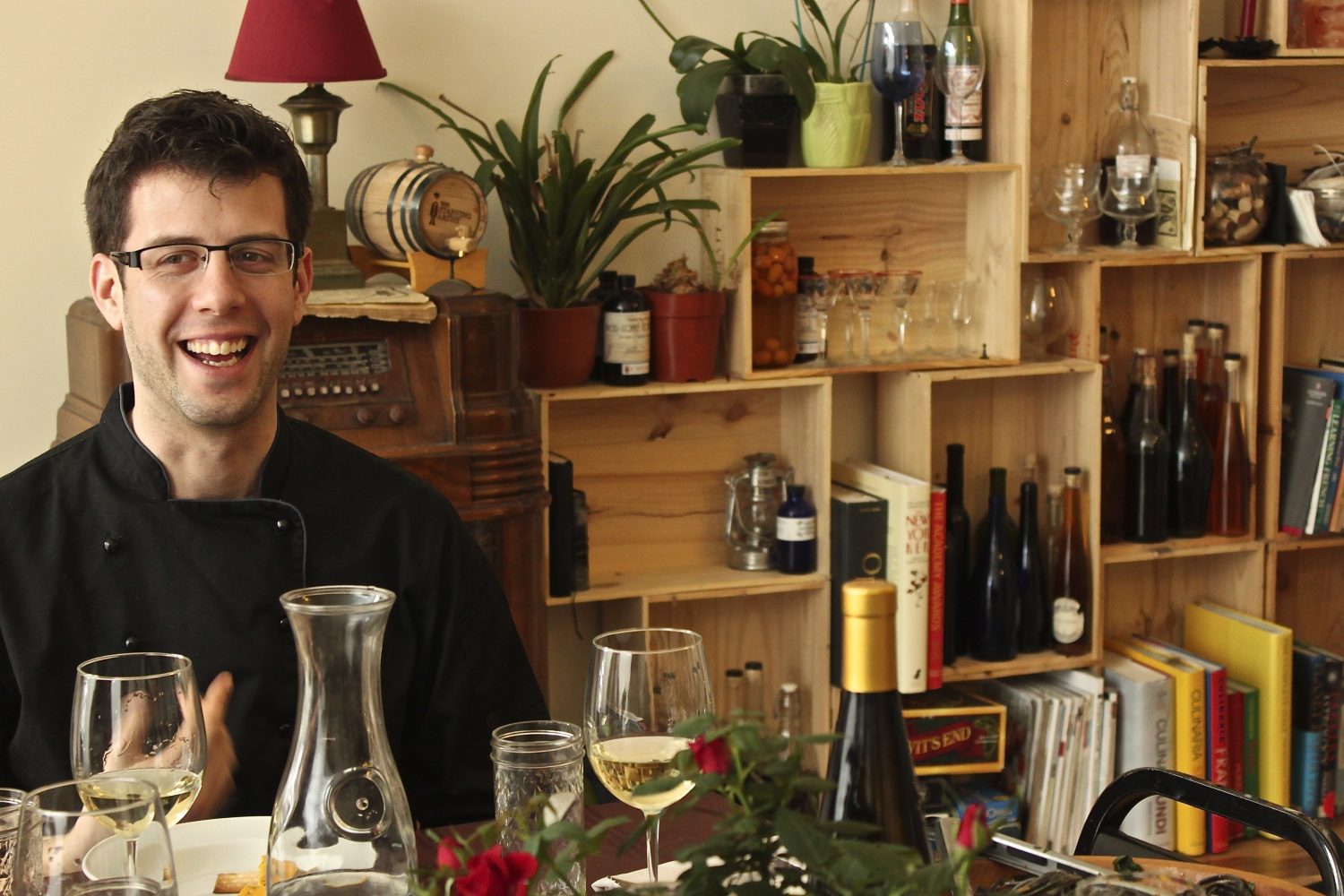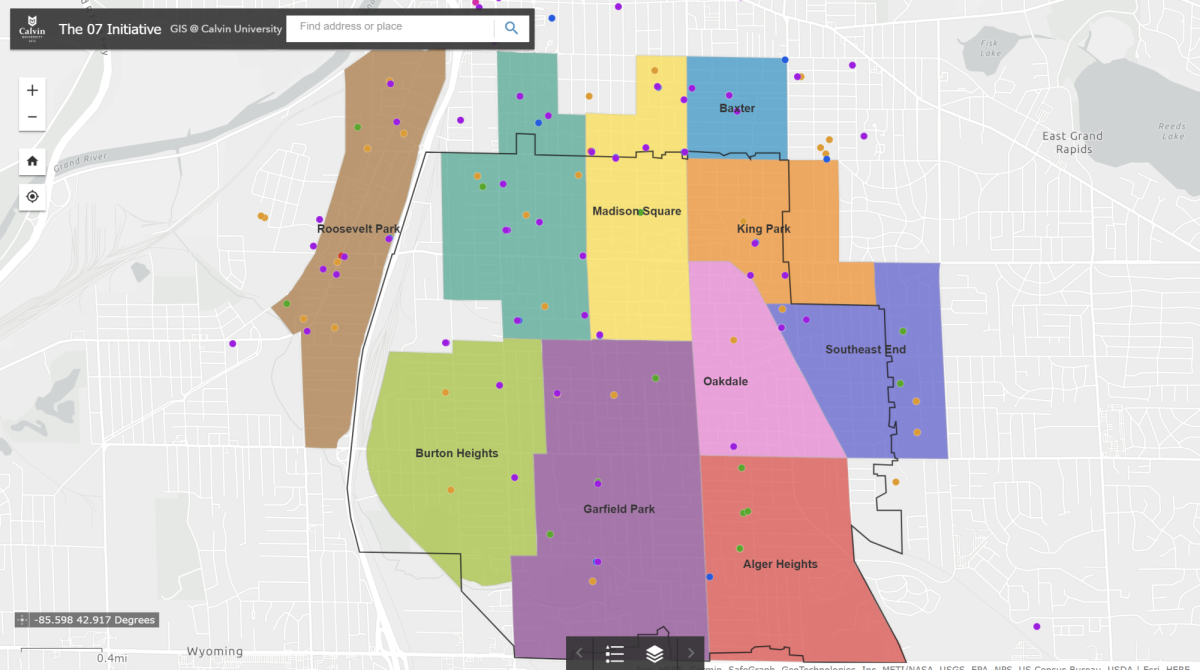Torrence O’Haire, The Starving Artist, is a self-made private chef developing a difference in the culinary culture. As a devout traditionalist and trained sommelier and mixologist, O’Haire is always searching for something new to try.
“Everything [is] this passionate hunger for experience. When I make things, it’s my philosophy, art, style, design [and] aesthetic,” says O’Haire.
O’Haire believes that food is more than a meal. Food is about exploring culture and tradition while establishing community and presence around the table.
O’Haire also does a variety of cheffing right from his backyard.
“My background is in definitively farm to table,” says O’Haire.
“I grew up out in the farmlands. My mom’s family is the family that I basically grew up with and all of them are French Gypsy farmer artists,” says O’Haire.
“Things to me that seemed completely normal, I am slowly coming to realize that, nope, that’s just us. Like foraging in the woods, berry picking or picking herbs for tea,” says O’Haire.
O’Haire credits his culinary training to a lifetime spent in the kitchen, surrounded by varying styles and levels of expertise of his mom and aunts.
“If you wanted to hang out with everybody, you had to be in the kitchen. If you were in the kitchen, you were either put on clean up duty or you had to make yourself useful,” says O’Haire.
“When people [ask] ‘where did you go to culinary school?’ I jokingly answer, ‘oh, I’ve been in culinary school for 25 years,’” says O’Haire.
From ages 14 to 19, O’Haire cooked at every opportunity.
“I messed a lot of stuff up. Don’t get me wrong; I was not a child prodigy or amazing chef at age 14,” says O’Haire.
He entered the fine dining scene at age 17 as a host and busboy.
“As much as I was just busboy and host, I was so interested in being a part of what was going on. I was so interested and invested. I was always following people around asking questions,” says O’Haire.
O’Haire identified the distinction between understanding the technical aspects and recognizing how foods work together as a meal or menu.
“It became this natural fusion. I’ve worked quite literally in almost every aspect of this industry,” says O’Haire.
“With that stylistic background, it became an easy jump of ‘I bet I can fuse this into something that is more than just me working in somebody else’s restaurant. I bet if I quite all of my jobs, I would find some way to make this work because it would have to.’ And so I did,” says O’Haire.
Since December 2011, O’Haire has worked under the name The Starving Artist and gained credibility as West Michigan’s foremost private chef, culinary educator and food authority.
O’Haire combines two of his passions — teaching and food — through professional culinary classes.
“I love teaching classes. With me, I’d love to be able to focus on how I can get you to understand how this functions as practice, if you will,” says O’Haire.
“[I want to] sit down and explore how the topic of pasta works or yeast baking or what makes French pastry different from Italian pastry,” says O’Haire.
In addition to teaching culinary classes and cheffing events, private dinners, tasting and parties, O’Haire developed a successful underground supper club. One Sunday evening, O’Haire decided to invite all his friends over for a themed dinner party.
“When everyone was leaving, the first thing everyone said was, ‘When is the next one? Is this a monthly thing?’” says O’Haire.
“[I thought] clearly, this can be something. It will be my excuse to try out new foods. It will be my excuse to actually sit with people and have dinner. I don’t have to serve them, I just put dinner on,” says O’Haire.
As a “secret” organization, The Full Moon Supper Club is a community-focused, slow food underground supper club. The Full Moon Supper Club has never been advertised. Rather, it is spread by word of mouth. Each month, familiar faces and new guests join around the dinner table.
“As far as I know, we are the oldest and most successful underground restaurant to this day. We have not missed a month for two and a half years,” says O’Haire.
With plans to open his own restaurant within the next two years, O’Haire pursues innovative ways to interact within the culinary culture while continuing to challenge clients, guests and friends.
According to O’Haire, the current restaurant climate is dim compared to other “food cities.”
“In Grand Rapids, it became this placation of this ignorance of good dining [and an] ignorance of taste which lulled the Grand Rapids population into having no interest, or worse, having a lot of fear towards anything that isn’t meat and sauce,” says O’Haire.
“The big places that are full every night making tons of money as a restaurant are too afraid to challenge their guests and guests are too afraid to be challenged,” says O’Haire.
“One of the biggest problems now is there has been a history of teaching prospective food community members that in order to start a restaurant in Grand Rapids, it has to be this $2 million, shiny, super-designed, fancy, artsy [and] really big place,” says O’Haire.
Instead, O’Haire suggests adjusting our views on food to pure, sustainable, local ingredients with the pursuit of strengthening the community.
“Dinner tables nowadays are so private and separate,” says O’Haire. “For me, it’s all about establishing the community importance at the dinner table, which is so lost today.”









